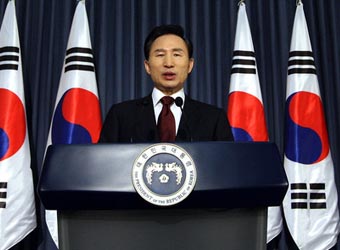The currency swap arrangement between Japan and South Korea will be reduced next month to its lowest level since 2006, amid a deterioration in diplomatic relations between the neighboring countries.
The yen-won currency swap that was initiated in 2005 with a value of $3bn will be allowed to expire next month, the Bank of Korea said on Monday. An expansion of the swap to an equivalent value of $30bn had already been allowed to lapse last October, along with a $30bn-dollar swap facility.
This leaves only a dollar swap facility introduced under the regional Chiang Mai Initiative, launched at $2bn in 2001, and increased to $10bn in 2006.
Currency swaps allow countries reliable access to foreign currency in times of financial stress. Although neither side has openly attributed the shrinking of the swap agreement to political tensions, it has come amid what politicians and analysts have described as the worst period in bilateral relations for many years.
Last August, then South Korean president Lee Myung-bak visited an island group disputed between the countries. His aides said he had been frustrated by Japan’s refusal to issue a more strongly worded apology for enforced sexual slavery of Korean women during the Second World War.
Relations have cooled further following Shinzo Abe’s election in December as Japanese prime minister. Mr Abe has questioned the view that Japan invaded other countries during its imperial expansion.
In April, senior members of his government visited Tokyo’s Yasukuni Shrine – where convicted war criminals are among those honoured – prompting South Korea’s foreign minister to cancel a visit to Japan. Even routine informal contact between politicians on both sides has virtually ceased, according to one former South Korean minister.
Park Joon-suh, head of the international financial stability team at the Bank of Korea, declined to comment on whether political factors had contributed to the failure to extend the swap, but noted that it had never been used.
“We’ve decided that the need for extending the deal is not big, considering current economic and financial conditions in both countries,” he said. “Both sides agreed that even if we don’t extend the deal, its impact on financial markets will not be big.”
Mr Park said there were no plans to revive the swap in the near future, although this could be discussed if circumstances changed.
Lee Sang-jae, an economist at Hyundai Securities, said: “The decision has been expected, given the current relations between Korea and Japan. Political tension between the two countries has been building up and the strained relations are affecting economic matters.”
Source: Financial Times


